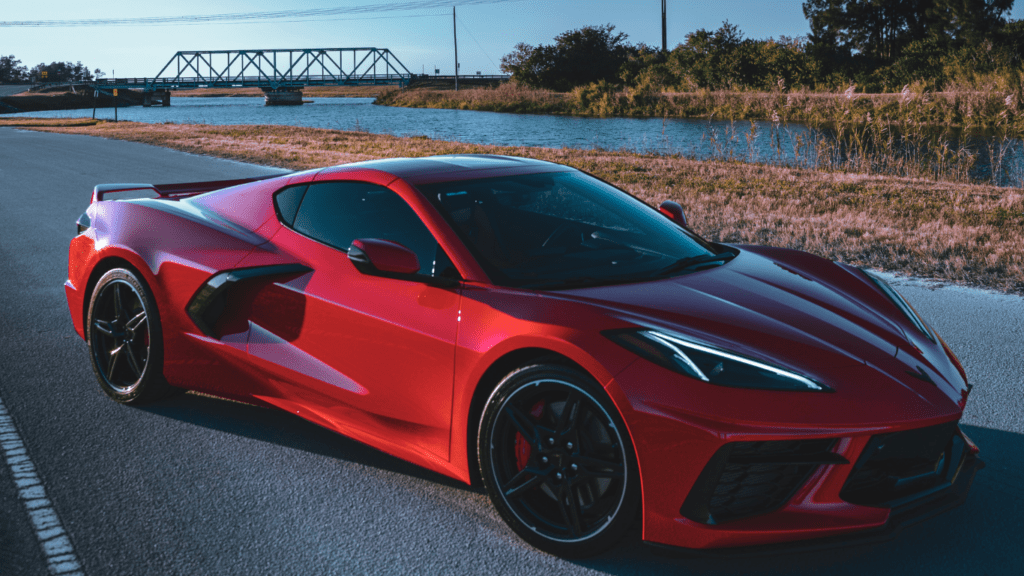The Rise of Sustainability in the Automotive Industry
Sustainability’s growth in the automotive sector has transformed car manufacturing and consumer preferences. Major car manufacturers now focus on producing electric and hybrid vehicles. For example, Tesla, BMW, and Audi have expanded their eco-friendly offerings, reflecting a shift toward greener technologies. These efforts highlight the industry’s response to climate change and its commitment to reducing carbon footprints.
Advanced technology plays a crucial role in this transformation. Innovations in battery life, charging infrastructure, and renewable energy sources have made eco-friendly cars more accessible and appealing. Fast-charging networks, like those from Tesla and ChargePoint, reduce the inconvenience associated with electric vehicles, making them a viable option for daily commutes and long drives.
Consumer demand also drives sustainable practices in the automotive industry. More individuals prefer brands that prioritize environmental responsibility. This shift has led to an increase in the popularity of car-sharing services and ride-hailing platforms, such as Zipcar and Uber, which often include electric and hybrid vehicles in their fleets. Consumers’ desire for sustainability directly influences market trends and prompts companies to adopt greener solutions.
Sustainability impacts governmental policies too. Regulations in many countries encourage the production and use of electric vehicles. For instance, the European Union’s stricter emissions standards push manufacturers to innovate and produce more eco-friendly cars. Incentives, such as tax breaks and grants, further support the adoption of green vehicles.
Automakers also focus on the entire lifecycle of a vehicle. Companies invest in sustainable materials, efficient manufacturing processes, and recycling programs. BMW’s i3 model, for example, uses recycled materials and renewable energy during production. These practices reduce environmental impact and resonate with eco-conscious consumers.
Sustainability in the automotive industry benefits the VIP car rental sector as well. High-end rental services cater to a clientele that values luxury and environmental responsibility, offering electric and hybrid models to meet this demand. The integration of sustainable vehicles in VIP rental fleets showcases the synergy between luxury and sustainability, creating a new standard for premium travel experiences.
The Concept of VIP Car Rentals
VIP car rentals focus on providing a premium, luxurious travel experience tailored to high-end clientele. They offer a range of exclusive services and vehicles designed to meet the needs of discerning customers.
Defining VIP Car Rentals
VIP car rentals offer high-end vehicles and personalized services. Clients get access to luxury cars like Rolls-Royce and Bentley, along with chauffeur options and exclusive features. These rentals cater to business executives, celebrities, and other individuals who demand the best in comfort and style.
Market Trends and Demands
Market trends show an increasing demand for sustainable luxurious transport. Eco-conscious clients seek electric and hybrid options without compromising on luxury. Companies like Tesla and BMW are capitalizing on this trend by including high-performance sustainable vehicles in their VIP fleets. Clients value brands that combine luxury with environmental responsibility, influencing rental companies to adapt their offerings accordingly.
Integration of Sustainable Practices

VIP car rental companies are increasingly adopting sustainable practices. This shift aligns with the evolving demands of eco-conscious consumers who seek luxury without compromising the environment.
Use of Electric and Hybrid Vehicles
VIP car rental companies now include:
- electric
- hybrid
vehicles in their fleets. Brands like Tesla, BMW, and Audi lead the charge in providing high-performance, sustainable options. These vehicles offer the luxury and performance clients expect while significantly reducing carbon emissions. For example, Tesla’s Model S and BMW’s i8 deliver top-tier travel experiences with minimal environmental impact.
Eco-friendly Driver Training Programs
Companies also invest in eco-friendly driver training programs. These programs educate chauffeurs on efficient driving techniques that maximize fuel economy and minimize emissions. For instance, maintaining a steady speed and minimizing idling reduce fuel consumption. Through these initiatives, I ensure that sustainability goes beyond just the car itself and extends to everyday operations.
Sustainable Fleet Management
Effective sustainable fleet management plays a crucial role in this equation. This involves routine maintenance of vehicles to ensure they operate efficiently and last longer. Utilizing telematics can optimize routes, reducing unnecessary mileage and, consequently, emissions. Additionally, some companies opt for sustainable materials in vehicle interiors, aligning every aspect of their service with eco-friendly principles.
In sum, integration of sustainable practices in VIP car rentals enhances both the luxury experience and environmental responsibility, setting a new industry standard.
Benefits of Sustainable VIP Car Rentals
Embracing sustainable practices transforms VIP car rentals, offering significant advantages for both the environment and businesses.
Environmental Impact Reduction
Sustainable VIP car rentals, with electric and hybrid vehicles, drastically reduce carbon emissions. Traditional luxury vehicles consume substantial amounts of fossil fuels, thus contributing to pollution. However, integrating green technology in high-end fleets significantly lessens the carbon footprint. Tesla’s Model S, for example, showcases low emissions without sacrificing performance. This shift fosters environmentally friendly travel, meeting eco-conscious clients’ demands and promoting global sustainability.
Cost Efficiency
Sustainable VIP car rentals lower operating costs. Electric and hybrid vehicles incur fewer maintenance expenses because they have fewer moving parts than traditional internal combustion vehicles. Tesla reports that electric vehicles require 64% less maintenance than gasoline vehicles. Furthermore, fuel costs plummet as electric charging is often cheaper than gasoline or diesel. These savings extend to clients, who appreciate eco-friendly luxury at competitive rates. Investing in sustainable options thus provides financial advantages without compromising on quality.
Enhanced Brand Image
- Adopting sustainable practices elevates a brand’s image.
- Clients now prioritize environmental responsibility alongside luxury.
- When a high-end car rental offers eco-friendly options, it differentiates itself from competitors, appealing to modern consumers’ values.
- Luxury brands like Tesla and BMW that focus on sustainability experience heightened brand loyalty and positive public perception.
- This approach also attracts media attention and aligns with global regulatory trends favoring green technology, ensuring long-term market relevance. Sustainable VIP car rentals, therefore, boost reputation and client trust.
Challenges and Solutions
Integrating sustainable practices in VIP car rentals presents several challenges. However, there are effective solutions to address these issues.
Initial Investment Costs
Implementing sustainable practices involves significant initial investments. Companies must purchase electric and hybrid vehicles, which are costlier than traditional ones. According to the International Energy Agency, the average cost of an electric vehicle is about $10,000 higher than a conventional car. Additionally, adapting infrastructure for these vehicles adds to the cost.
To mitigate these expenditures, rental companies can take advantage of government incentives and grants aimed at promoting green technologies. For example, the U.S. federal government offers tax credits up to $7,500 for electric vehicle purchases. Leasing options can also spread costs over time, making the transition more manageable.
Infrastructure and Technology
Adopting sustainable vehicles requires adequate infrastructure, such as charging stations. With electric vehicles, companies need accessible and efficient charging solutions to ensure operations run smoothly. However, creating this infrastructure involves both high costs and significant planning.
Partnerships with charging network providers like ChargePoint can reduce infrastructure burdens. Additionally, developing in-house charging stations, especially in high-traffic areas, ensures a reliable energy supply. Advanced telematics can optimize routing, further increasing operational efficiency.
Properly addressing these challenges enables VIP car rental companies to seamlessly integrate sustainability into their operations, aligning with consumer expectations and regulatory standards.



 Founder & CEO
Founder & CEO
